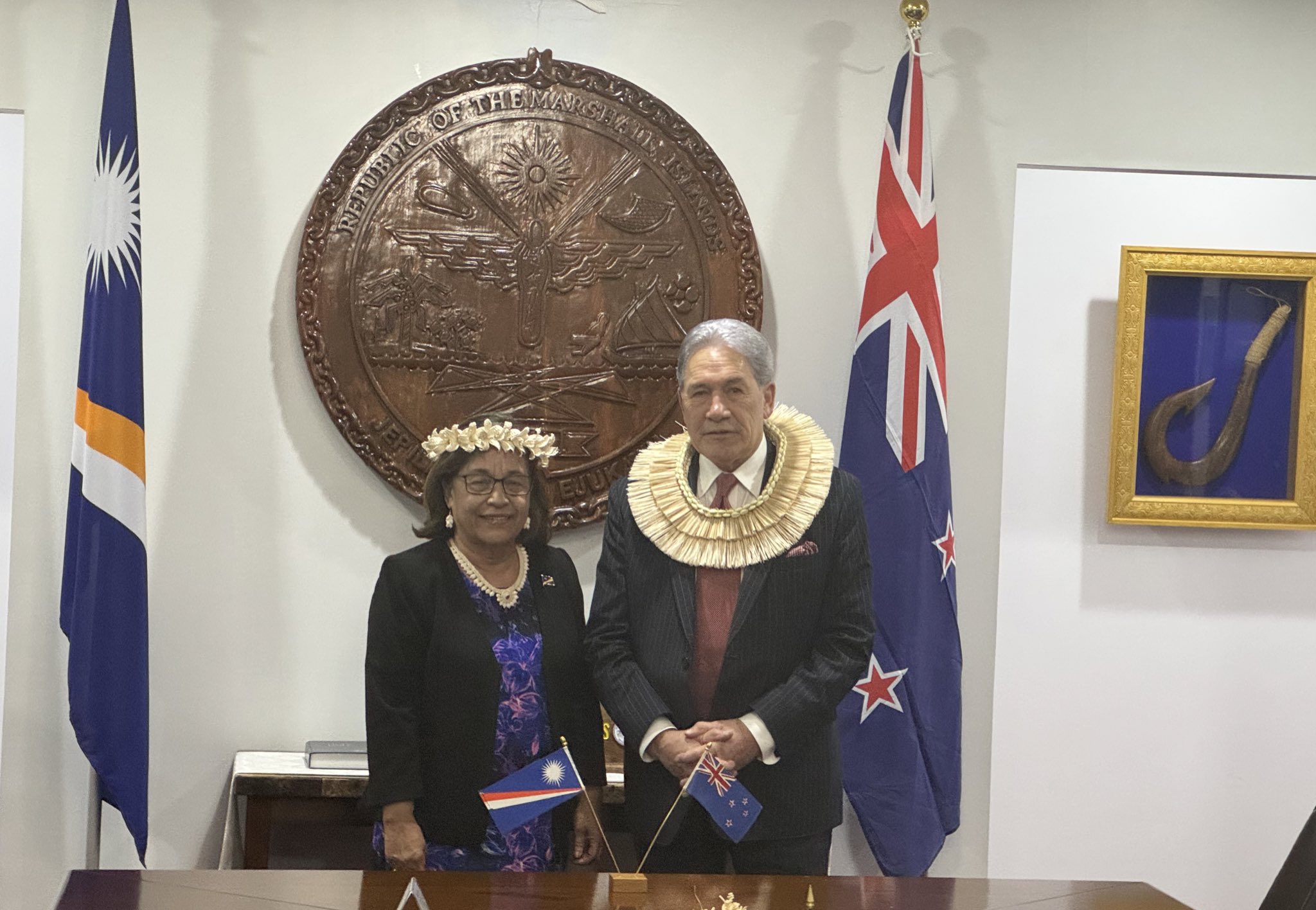The Marshall Islands will receive $6.2 million (US$4 million) from Aotearoa’s foreign minister to adapt to climate change, as rising sea levels and strengthening typhoons put the island nation at greater risk.
“New Zealand is committed to addressing the ‘Blue Continent’ challenges, including those in the Marshall Islands. For that reason, we are investing more in supporting a resilient and prosperous Marshall Islands,” said Foreign Minister Winston Peters, during an ongoing visit to Majuro, the island nation’s capital.
“The Marshall Islands, as a nation of low-lying atolls and islands, is at the forefront of natural disasters and the impacts of climate change, and our support reflects that,” Peters said.
The sea level around the Marshall Islands has risen more than twice the rate of the rest of the world since 1993, roughly a third of a centimetre each year, with fears it will rise over a metre by 2100, rendering much of the nation uninhabitable.
The delegation marks both Peters’ and the New Zealand government’s first trip to the Marshall Islands in 17 years and includes Chair of the Labour Pacific Caucus, Jenny Salesa; Chair of the Foreign Affairs, Defence and Trade Committee (FADTC) Tim van de Molen; and FADTC member Teanau Tuiono.
On the delegation’s agenda are meetings with President Hilda Heine, Minister-in-Assistance Bremity Lakjohn, Foreign Minister Kalani Kaneko and other Ministers and Members of Parliament to discuss shared priorities and perspectives on regional issues.
As climate change effects intensify in the Pacific, a climate activist is calling for significant and multi-national efforts to establish mechanisms and systems that meet the needs of the Pacific peoples.
Pacific Islands Students Fighting Climate campaign director Vishal Prasad says more needs to be done to address the loss and damages vulnerable communities face in the Pacific.
“There is a need for funding to address the losses and the damages that have been suffered by communities. These are losses and damages that are beyond the adaptation’s scope.”
He said this includes climate, culture, traditions, identity and the losses tied to people’s sense of a place and belonging.
“How do we address those challenges through climate finance so a fit-for-purpose mechanism looks at it and is able to understand and meet the situations in different countries?
“[It’s by] having funds available that can address all of these challenges so we can quickly and rapidly scale up finance, scale up mitigation, adaptation and loss and damage in all countries.”
The organisation has been campaigning since 2019 seeking an advisory opinion from the International Court of Justice on the issue of climate change and human rights.
Prasad said the impacts of climate change across the Pacific are severe and are being felt in a variety of ways in different countries.
“For Fiji, for example, because of sea level rise, there have been villages that have already been relocated or identified.”
“Relocation is already happening, so it’s not just a problem for the future,” he said.














